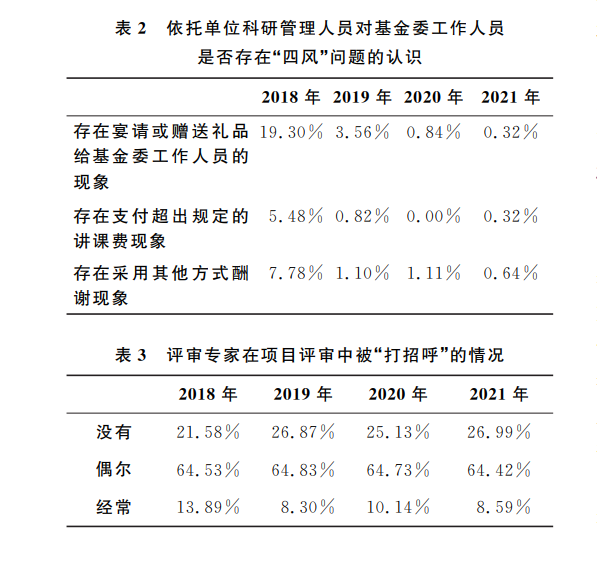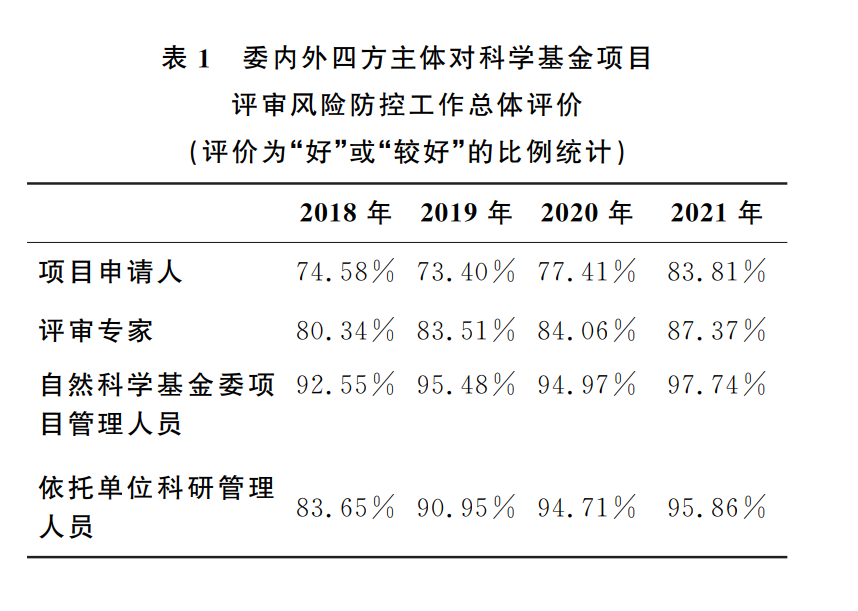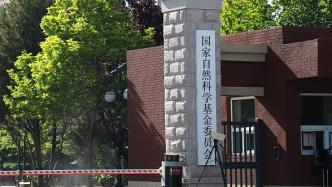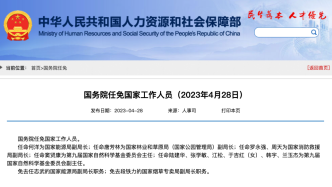
According to the latest paper published by officials of the National Natural Science Foundation of China ("Natural Science Foundation of China"), in the evaluation of its science fund projects, the phenomenon of "asking" and "greeting" for various evaluation experts has changed from 2018 to 2021. "There is a certain containment."
The data published in the paper shows that the proportion of review experts who were "not greeted" in project reviews increased from 21.58% to 26.99%; while the combined proportion of review experts who were "occasionally greeted" and "often greeted" in project reviews was decreased from 78.42% to 73.01%.
The paper was published on the latest issue of "China Science Foundation" [Vol. 36(5)] in 2022, supervised and sponsored by the National Natural Science Foundation of China, and published on October 25.

The screenshot is from the paper "Retrospect and Prospect of Deeply Promoting the Construction of Anti-corruption Risk Prevention and Control System since the Systematic Reform of the Science Fund".
The title of the above paper is "Retrospect and Prospect of Deeply Promoting the Construction of Integrity Risk Prevention and Control System Since the Systematic Reform of the Science Fund". The first author is Ni Shanqiang, deputy director and associate researcher of the Discipline Inspection Office (Disciplinary Inspection Office) of the Party Committee of the National Natural Science Foundation of China.
The data published in the paper shows that from 2018 to 2021, the proportion of review experts who were "frequently greeted" in project reviews dropped from 13.89% to 8.59%.
The proportion of evaluation experts who are "occasionally greeted" in project evaluation is basically the same. From 2018 to 2021, the figures for the four years are 64.53%, 64.83%, 64.73%, and 64.42%, respectively.
According to the paper, "The proportion of 'no (greeted)' and 'occasionally (greeted)' will exceed 90% in 2021 (reporter's note: total)." "Through the follow-up survey of review experts, more and more of experts also choose not to be affected, impartial review or apply for recusal, and among them, the proportion who believe that they can insist on not being affected and impartial review will increase from 69.44% in 2018 to 74.6% in 2021.” "In addition, the effect of asking for information, 'greeting' and 'doing work' when applying for science fund projects is getting smaller and smaller". "The proportion of voluntary applications for avoidance increased from 5.77% in 2018 to 10.06% in 2021."

The screenshot is from the paper "Retrospect and Prospect of Deeply Promoting the Construction of Anti-corruption Risk Prevention and Control System since the Systematic Reform of the Science Fund".
According to the paper, from the questionnaire survey from 2018 to 2021, the quartet of subjects inside and outside the Committee have a good overall evaluation of the risk prevention and control work of the Science Fund project review, and the proportion of "good" or "better" is increasing year by year. The proportion of project management personnel and scientific research management personnel of supporting units rated as "good" or "better " will exceed 95% in 2021. "
According to the paper, since 2018, the party group of the National Natural Science Foundation of China has further promoted the construction of a clean government risk prevention and control system in the process of comprehensively deepening the systematic reform of the Science Fund, and has formed a system based on standardizing the operation of power, focusing on sound rules and regulations, and insisting on A "full-cycle management" scientific fund anti-corruption risk prevention and control system that uses high-pressure deterrence as the means, pursues the practice of honesty and integrity, and strengthens organizational construction as the guarantee. Its main effect is that it has preliminarily established a "big supervision" pattern with the full participation of multiple forces inside and outside the National Natural Science Foundation of China.
According to the paper, starting from 2018, the National Natural Science Foundation of China Commission for Discipline Inspection commissioned a third-party research group to conduct investigations on the construction of a clean and honest government and the prevention and control of clean government risks in the Science Foundation for four consecutive years. The survey is aimed at four types of subjects (an average of 200 person-times of internal staff, 1,000 person-times of review experts, 700 person-times of applicants, and 300 person-times of scientific research management personnel of supporting units), and adopts questionnaires, special seminars, and individual interviews , reviewing literature and other methods, which fully reflect the effectiveness of the establishment of the anti-corruption risk prevention and control system since the systematic reform of the Science Fund.
From the questionnaire survey from 2018 to 2021, it can be seen that the spirit of the Natural Science Foundation of China to implement the eight central regulations has improved significantly. In the survey of the scientific research managers of the supporting units, it was found that from 2018 to 2021, 19.3%, 3.56%, 0.84% and 0.32% of the respondents believed that there were banquets or gifts to the staff of the Natural Science Foundation of China; 5.48%, 0.82%, 0% and 0.32% of the respondents believed that there was a phenomenon of paying lecture fees that exceeded the regulations; 7.78%, 1.1%, 1.11% and 0.64% of the respondents believed that there was a phenomenon of using other methods of remuneration , the decrease is very obvious.
According to the paper, “From the perspective of the Natural Science Foundation of China, in the face of invisible mutation, renovation and upgrading of corruption methods, the existing operating mechanism and management capabilities cannot fully adapt to the needs and challenges of the new era. Extremist behaviors are repeatedly prohibited, the phenomenon of organized "mutual entrustment" and interest exchange cannot be ignored, the risk of "hunting" personnel within the commission remains high, and there are still shortcomings in the supervision and restriction of the operation of project management power, etc. .”
According to the paper, in terms of the perspective of anti-corruption risk prevention and control, it has expanded from focusing on direct corruption to focusing on marginal corruption. "Based on the relevant systems in the current anti-corruption risk prevention and control system, in-depth research on the new situation and changes in the environment inside and outside the Commission, as well as the new characteristics and new manifestations of various misconducts, from the perspective of anti-corruption risk prevention and control, from the perspective of punishing direct corruption Behaviors expand to borderline corruption behaviors, especially focus on misbehaviors and even corrupt behaviors between discipline and law, reason and legal principles, public and private right and wrong, such as power inheritance for profit, power exchange for profit, transfer of benefits for indirect profit, and extensive relationship Internet for profit, power 'optionization' for profit, collective decision-making for profit, information leakage for profit, use of legal procedures for profit, abuse of discretion for profit, etc."
According to the paper, "For behaviors that may have borderline corruption, further dig deep and sort out the potential points of integrity risk points, and take multiple measures to lock power into the cage of the system. In the process of governance of borderline corruption, we must strengthen the "four "Especially the application of the first form, catch the small ones early, prevent the erroneous progress, make biting ears and sleeves, red face sweating become the norm, and achieve the unity of political effects, disciplinary effects, and social effects."
The National Natural Science Foundation of China was officially approved by the State Council on February 14, 1986. It is a sub-ministerial institution that manages the National Natural Science Foundation of China. It manages the National Natural Science Foundation of China in accordance with the law. It operates relatively independently and is responsible for funding plans, project settings and evaluations. , project approval, supervision and other organization and implementation work. The Natural Science Foundation of China was previously a public institution directly under the State Council. In 2018, according to the "Deepening Party and State Institutional Reform Plan", it was changed to be managed by the Ministry of Science and Technology.
The fifth plenary meeting of the 8th National Natural Science Foundation of China held in Beijing on March 24, 2022 revealed that in 2021, the Natural Science Foundation of China received a total of 287,300 project applications from 2,373 supporting units, and selected the best to fund various projects. There are 48,800 projects, and the direct cost of funding is 31.293 billion yuan .


